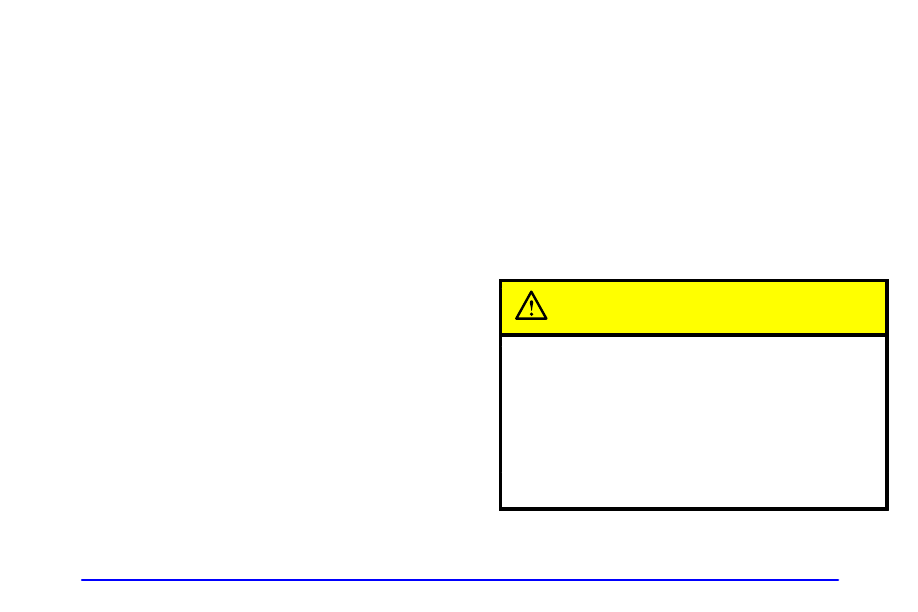Safety chains, Trailer brakes, Driving with a trailer – Oldsmobile 2000 Silhouette User Manual
Page 280: Caution

4-35
D Will you have to make any holes in the body of your
vehicle when you install a trailer hitch?
If you do, then be sure to seal the holes later when
you remove the hitch. If you don’t seal them, deadly
carbon monoxide (CO) from your exhaust can get
into your vehicle (see “Carbon Monoxide” in the
Index). Dirt and water can, too.
Safety Chains
You should always attach chains between your vehicle
and your trailer. Cross the safety chains under the tongue
of the trailer to help prevent the tongue from contacting
the road if it becomes separated from the hitch.
Instructions about safety chains may be provided by
the hitch manufacturer or by the trailer manufacturer.
Follow the manufacturer’s recommendation for
attaching safety chains and do not attach them to the
bumper. Always leave just enough slack so you can turn
with your rig. Never allow safety chains to drag on
the ground.
Trailer Brakes
If your trailer weighs more than 1,000 lbs. (450 kg)
loaded, then it needs its own brakes
--
and they must be
adequate. Be sure to read and follow the instructions for
the trailer brakes so you’ll be able to install, adjust and
maintain them properly.
Because you have anti
-
lock brakes, do not try to tap
into your vehicle’s brake system. If you do, both brake
systems won’t work well, or at all.
Driving with a Trailer
CAUTION:
If you have a rear
-
most window open and you
pull a trailer with your vehicle, carbon monoxide
(CO) could come into your vehicle. You can’t see
or smell CO. It can cause unconsciousness or
death. (See “Engine Exhaust” in the Index.)
To maximize your safety when towing a trailer:
CAUTION: (Continued)